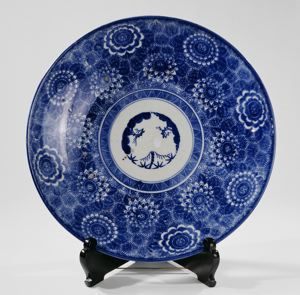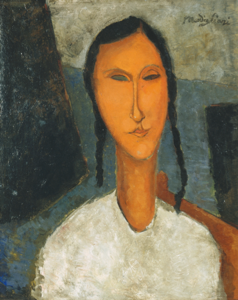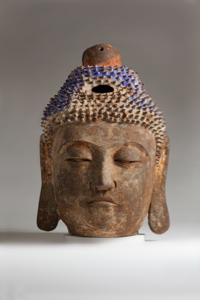FILTER RESULTS
Charger with “Three Friends of Winter” motif
1868-191120th century
17 3/4 in. (45.09 cm)
Japanese, late Meiji period, Japanese, (1868–1912)
Object Type:
Asian
Medium and Support:
Porcelain with underglaze cobalt blue
Credit Line:
Gift of Wyldon Burgess Nail Harrold
Accession Number:
1981.316
Object Description
In the center of the dish is a circular design of pine, plum, and bamboo, encircled by a geometric border. The cavetto is filled with large chrysanthemum and peony blossoms on a dense ground of smaller stylized chrysanthemum blossoms. The exterior is decorated with sprays of floral scrolls and parallel borders. The central motif is known as the "Three Friends of Winter" (shochikubai), an ensemble motif of Chinese origin that teams the pine, plum, and bamboo, which are all symbols of winter, long life, and the cultured gentleman.The development of the Japanese porcelain industry in the seventeenth century was the result of many skilled potters being brought to Japan from Korea. A Korean immigrant potter, Ri Sampei (1579-1655), established a major porcelain production in the town of Arita in Saga Prefecture on the Japanese island of Kyushu. In the early seventeenth century the Arita kilns produced white wares decorated in an underglaze cobalt blue, using designs copied from Chinese wares. Over time, the designs became more thoroughly Japanese in flavor, as is seen in the stylization of the motif on this charger.
Keywords
Click a term to view the records with the same keyword
This object has the following keywords:
Additional Images
Click an image to view a larger version
Portfolio List
Click a portfolio name to view all the objects in that portfolio
This object is a member of the following portfolios:



